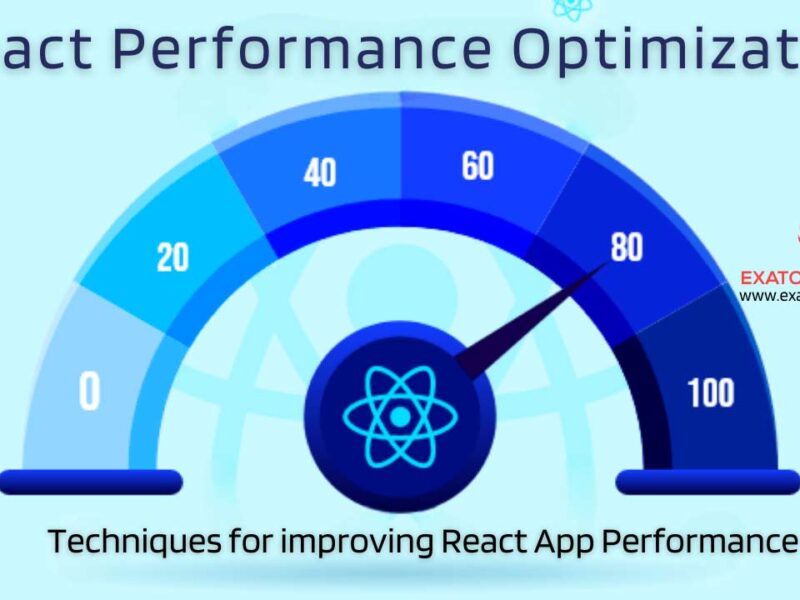The cloud has dominated tech news in recent years, with analysts frequently predicting an imminent “cloud apocalypse” as businesses migrate their operations to data centers as far away from natural disasters as possible. And yet, the cloud continues to grow in popularity among both businesses and consumers. The benefits offered by cloud computing are too good to ignore: As long as you carefully choose your service provider and understand exactly what you’re getting yourself into, moving your data, software, and storage online can give you access to much more computing power than you have available locally. This article will explore the different ways that mobile computing can be implemented in cloud environments. Given the rapid pace of change in this space, we’ve included a few pointers for keeping abre
Mobile cloud computing applications
A software application known as a mobile cloud app is one that is made to be accessed online using mobile devices. There are numerous instances of mobile cloud solutions in use today, including the following:
Email.
This is a typical illustration that is frequently used. Examples of mobile email include Gmail, Outlook, and Yahoo Mail. You use mobile cloud technology when you check your emails on a mobile device.
Social Media.
Real-time data sharing is possible via mobile social networking, whether it be through Facebook, Instagram, or Twitter. A mobile user, for instance, can store data and send videos to other users.
Commerce:
Do you utilize a mobile e-commerce or banking app? You use mobile cloud computing if the answer is yes. Scalable processing power is used in mobile commerce (MCC).
Healthcare.
Through mobile healthcare, MCC enables enormous amounts of real-time data storage that is accessible from a mobile device. For instance, accessing patient records while on the go is quick and simple.
What Is Cloud Computing?
Cloud computing is the delivery of software and computer services that use a network (the “cloud”) to provide remote computing resources, such as servers and storage. The cloud computing model is based on “as a service” delivery models, and the provision of high-capacity servers that are accessed through the Internet, rather than as a computer located on the customer’s premises. The benefits of cloud computing include centralized management, ease of scalability, and reduced costs.
A typical example of a cloud service is an application hosted on a server that is managed by the cloud service provider. However, many other services, including the underlying hardware and network, can be delivered via the cloud. Cloud computing can be described as “delivering computing as a service rather than a product” where computer processing, data storage, and other related resources are not only available as a service, but also can be “accessed” and “utilized” by customers, who can also be “providers” of resources, using a computer network, usually the Internet.
Mobile Cloud Market
Mobile cloud computing is a subset of cloud computing, where the cloud is used to deliver mobile app functionality. Cloud computing is projected to be a $51 billion market by 2022. This is an optimistic projection, as the mobile cloud computing market is still in its early stages. Mobile cloud computing is an umbrella term for several cloud services that enable businesses to build mobile applications that are scalable and can be accessed on any device.
These cloud services are used as the backend to provide functionality or data that can be integrated into an app. Although mobile cloud computing has existed since the early 2000s, the market has seen significant growth over the past few years due to the rise of mobile technologies and the Internet of Things (IoT). Enterprises are increasingly building mobile apps that need a scalable and easily accessible backend. This has led to an increase in the use of cloud computing services, including SaaS, PaaS, and IaaS.
Histories of Mobile and Cloud Computing
Mobile computing has been around since early computers were large enough to fit in a car. Early mobile computing environments used a variety of approaches but mostly relied on special computers that were optimized for mobility.
Historically, these were mainly low-power machines running Smalltalk or other special-purpose languages, with a few special-purpose minicomputers. In the ‘80s, the standard for mobile computing shifted to Unix workstations, running either standard Unix or specially modified Unix variants, like SCO’s Unix for Manta. As networked computing became the norm, the model shifted from special computers to networked computers.
The rise of laptop computers, which could be plugged into a network, enabled the same sort of mobile computing environment as the special-purpose computers, but with commodity hardware and higher levels of interoperability.
General-purpose vs application-specific MCC solutions
A general-purpose implementation is essentially an emulation of the host OS, like VMware’s ESX. It’s a very powerful approach, but it’s also complex, and not optimized for any particular workload.
A more targeted approach is to build an application-specific solution that’s tightly integrated with the host OS and the specific workloads it’s running. This is a more complex approach in general, but it allows the MCC solution to be far more efficient, both in terms of performance and resource utilization.
What’s the difference between cloud computing and mobile computing?
Cloud computing is a particular type of distributed computing architecture. Mobile computing, on the other hand, simply describes an application that runs on a mobile device (such as a smartphone or tablet). That application can be hosted on either a local device or in a cloud environment.
A cloud-based mobile application works in a similar way to a desktop app: The application is running remotely, and the user interacts with it using a web browser. On the other hand, a local application runs on the user’s device, and the server only manages data.
What Are the Benefits of Cloud-Based Mobile Apps?
Cloud-based mobile apps can run on nearly any device, regardless of the device’s hardware or operating system. This is a great advantage for users, as they can access your data and services from almost any device. It also makes it easier to develop apps, as developers don’t have to take into account different models and operating systems.
Cloud computing lets you take advantage of the elasticity of demand to easily scale up your app’s compute resources, so it can handle sudden spikes in user demand. You can also offload heavy-duty lifting like image and video processing to services in the cloud.
Drawbacks of a Cloud-Based Environment for Mobile Apps?
The main drawback of relying on cloud computing is that you have to be connected to the internet to access your data. Cloud services are, almost by definition, internet-based, so this isn’t surprising. However, it does pose a number of problems, ranging from intermittent service outages to the increased risk of data leaks.

If your data is stored in the cloud, then you’ll need to trust that your service provider will protect your data from unauthorized access. This isn’t to say that cloud providers aren’t trustworthy — many are highly reputable companies that have earned trust and respect over many years. It’s just to acknowledge that there’s always a risk that something bad could happen, no matter how careful you are.
Challenges of Cloud-Based Mobile Computing
Cloud computing can be expensive. It’s important to make sure your provider offers a cost-effective solution that meets your needs. Otherwise, you may end up spending more than you would if you just built something in-house. You also have less control over your data and how it’s managed. This isn’t necessarily a bad thing, but it’s something to be aware of.
You may want to hire a security auditor to make sure your provider is taking appropriate security measures. Finally, you need to make sure your provider is up to date on any legislative changes, including GDPR compliance. Cloud providers are often scrambling to catch up with these new rules, so make sure they have your data covered.
Where to from Here?
The cloud has expanded its reach beyond just storing data into a full-fledged computing environment that provides a wide range of services, including application hosting, remote desktops, and even machine learning and artificial intelligence services.
This wide array of offerings means that the cloud is an excellent choice for hosting mobile apps, as well. With the right provider, you can build your app in one place and have it run in the cloud.
All you have to do is send your source code, and the provider will build the app for you. Mobile apps built in the cloud also enable better collaboration between team members and enable real-time communication between people and businesses.
Mobile cloud computing (MCC) summary
Cloud computing on the go is an effective tool for business. It has numerous applications and employs cloud computing to deliver services to mobile devices. Email, social media, and commerce are common uses.
Real-time, cost-effective, and flexible, MCC offers a number of advantages. It has drawbacks as well, such as concerns about privacy and security.
Whatever the case, MCC is unquestionably here to stay and to expand. Contact our knowledgeable and experienced team for more details on cloud computing and mobile apps.



